Search
Saturday, February 12, 2021, 7:30 PM EDT, Online
Music performed and program notes
Rice Tavern site
Anonymous: Scotch Cap from John Playford’s Dancing Master
The Dancing Master was a manual for social dance with tunes first published in 1651 by John Playford (1623-c.1686) . The collection was extremely popular and was published in over a dozen editions until 1728. The tunes found in this collection were ubiquitous throughout the English colonies as well.
Loring Parsonage
G. F. Handel: Handel’s Water Piece arranged by Samuel Holyoke
from The Instrumental Assistant, Vol. 1, Exeter, NH, 1800
Samuel Holyoke (1762-1820) was a composer and teacher active on the North Shore of Massachusetts and New Hampshire. A prolific composer, he published over 700 of his own works. His two volumes of The Instrumental Assistant are important didactic works of early American instrumental music.
William Shield: Air in Rosina, arranged by Samuel Holyoke
from The Instrumental Assistant, Vol. 1, Exeter, NH, 1800
William Shield (1748-1829) was a prominent composer of English opera. This Air is from the overture to his most often performed work, Rosina (1782), which received over 200 performances in London by 1800.
Anonymous: Go to the Devil and Shake Yourself
from the Framingham Singing Society manuscript, c. 1808
This anonymous work is from a manuscript collection containing 14 works, principally dance tunes, now held at the Framingham History Center.
Revolutionary War Cemetery
Anonymous: Death of General Wolfe
from Whittier Perkins: A Collection of Dancing Tunes, Marches, & Song Tunes, Massachusetts, c. 1790
This tune is associated with a text widely published as a broadside ballad. James Wolfe (1727-59) was a celebrated military hero who led the siege of Quebec but died in a subsequent attack. The text and tune of this ballad have survived remarkably intact through oral tradition.
Anonymous: Coryon’s Ghost
from the Framingham Singing Society manuscript, c. 1808
This haunting tune is one of only two in this manuscript source that are notated in two parts.
Hearse House
William Shield: When the Rosy Morn, from Beauties of Music, Boston, 1799
When the Rosy Morn is the opening song of William Shield’s Rosina, sung by a trio in the original.
Town Pound
Anonymous, arr. by James Oswald: Hunt the Squirrel
James Oswald (1710-1769) was a composer, publisher, cellist, and dancer principally known for helping to popularize Scottish music through his many published collections.
Hosmer House
Pierre-Landrin Duport: Washington’s Minuet and Gavott
from United States Country Dances, New York, c. 1800
Pierre-Landrin Duport (c. 1762-1841) was a dancing master, choreographer, and composer. He was dancing master for the Paris Opéra, emigrating to the US after the fall of the Bastille. He worked in many cities throughout the U.S., including Boston (1793-98).
First Parish
Isaac Lane: Shepherds, Rejoice
Little has been uncovered about the composer and church musician Isaac Lane (1766-1803). He worked in and around Bedford, MA, and his hymn tunes and anthems appeared in a few contemporary collections.
Rice Tavern site
Mr. Augustus, arr. by Oliver Shaw: Walzer
from For the Gentleman. A Favourite Selection of Instrumental Music, Dedham, MA, 1807
Our research has not identified the composer of this charming waltz, listed as “Mr. Augustus.” Oliver Shaw (1779-1848) was a blind musician of great versatility. He was a singer, organist, composer, and publisher active in Dedham, MA and Providence, RI. Like Samuel Holyoke, he produced a publication of instrumental music that contained many of his own compositions.
Wayside Inn
J.C. Pepusch: Overture and Air from The Beggar’s Opera
18th c. arrangement published by John Walsh, London (n.d.)
The Beggar’s Opera was the first and most famous of the English ballad opera genre. Written in 1728 by John Gay (1685-1732), with music arranged by J.C. Pepusch (1667-1752) the opera ran for 62 consecutive performances following its debut. It was performed frequently in the U.S., and its tunes appeared in many contemporary American manuscript sources..
John Stafford Smith: Adams and Liberty
arr. from The American Musical Miscellany, Northampton, MA, 1798
Adams and Liberty is written to the tune of the Anacreontic song, the official song of the Anacreontic Society, an 18th-century gentlemen’s club of amateur musicians in London. The American Musical Miscellany is believed to be the first American book publication of the music of that song.
Interlude and lead-out music:
Oliver Shaw: Minuet
from For the Gentleman. A Favourite Selection of Instrumental Music, Dedham, MA, 1807
Musicians of the Old Post Road
Suzanne Stumpf, traverso
Sarah Darling and Jesse Irons, violins
Daniel Ryan, New England church bass
With special guest Vincent Canciello, fife and traverso
Sudbury Historical Society, Rachael Robinson, Executive Director
Interview participants include:
Rachael Robinson
Steve Green
Diana Cebra
Elin Neiterman
Sally Purrington Hild, Nonprofit Director, The Wayside Inn Foundation
Special thanks to
Sudbury Historical Commission
Framingham History Center
Videography and film editing by Bob Giordani
Sound editing by Daniel Ryan
Screenplay by Suzanne Stumpf
The Instruments
traversi by Martin Wenner, after Palanca and Simon Polak after Beukers
fifes: small fife in C, 10 hole fife in A-flat
violins by anon. (possibly French) labeled Carlo Bergonzi,
and by Victor LeCavalle, c. 1800
viola by T. Andreas Johnson, 1994, after P. G. Mentegazza
New England church bass by Abraham Prescott, Deerfield, NH, c. 1815
This project was funded, in part, by The Sudbury Foundation and the Carter Dalton Quinn Charitable Trust. Musicians of the Old Post Road is supported in part, by the Massachusetts Cultural Council, a state agency.
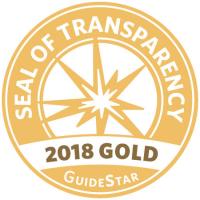



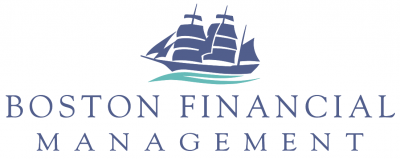


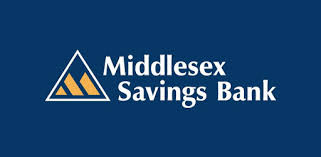
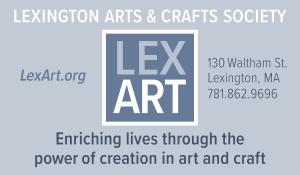
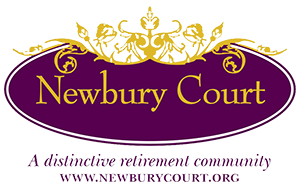

Daniel Ryan and Suzanne Stumpf, Artistic Directors
349 Boston Post Road, Weston, MA 02493
tel. (781) 466-6694
All content © Musicians of the Old Post Road
Privacy Policy
Terms & Conditions
